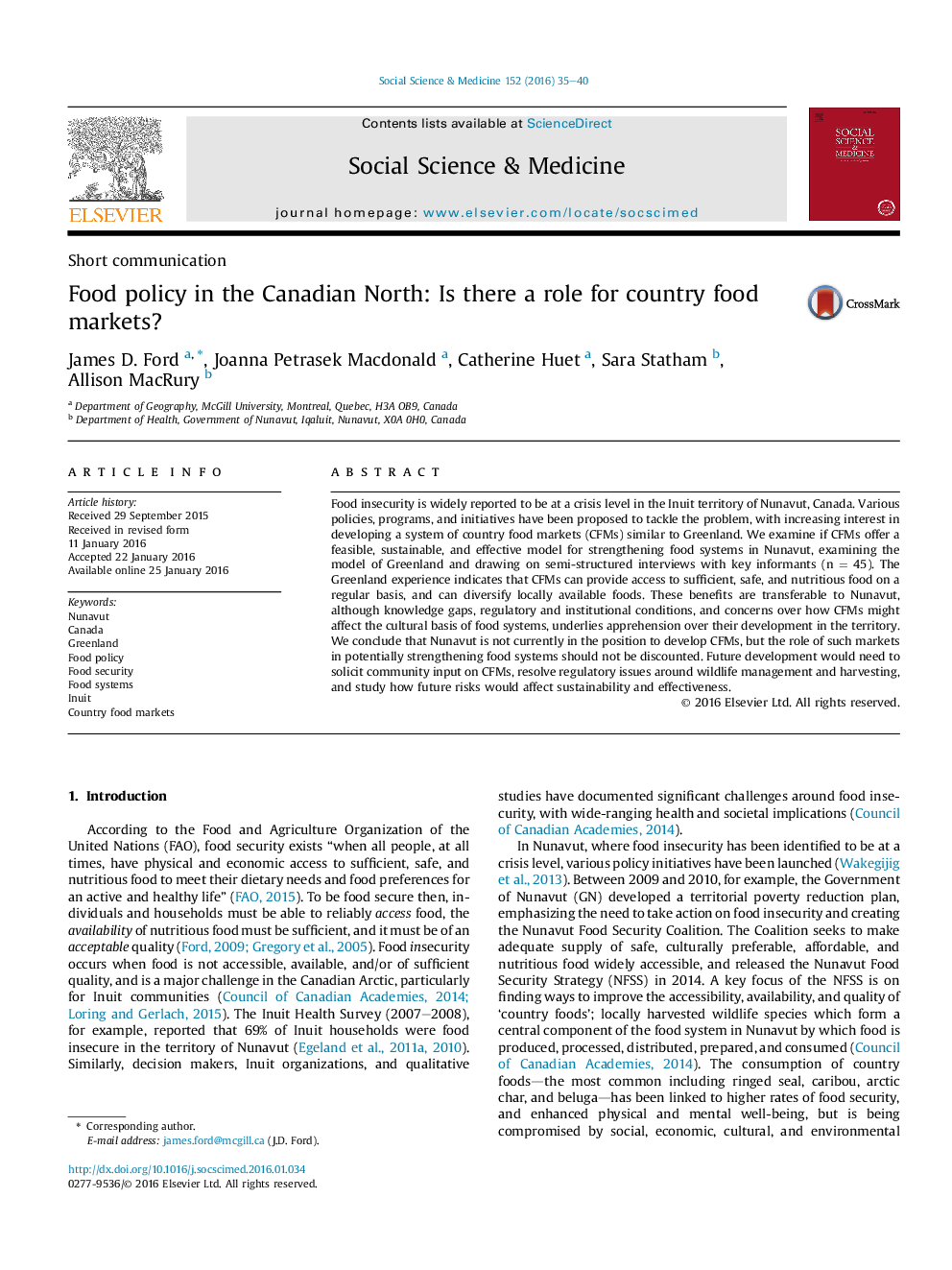| Article ID | Journal | Published Year | Pages | File Type |
|---|---|---|---|---|
| 7330643 | Social Science & Medicine | 2016 | 6 Pages |
Abstract
Food insecurity is widely reported to be at a crisis level in the Inuit territory of Nunavut, Canada. Various policies, programs, and initiatives have been proposed to tackle the problem, with increasing interest in developing a system of country food markets (CFMs) similar to Greenland. We examine if CFMs offer a feasible, sustainable, and effective model for strengthening food systems in Nunavut, examining the model of Greenland and drawing on semi-structured interviews with key informants (n = 45). The Greenland experience indicates that CFMs can provide access to sufficient, safe, and nutritious food on a regular basis, and can diversify locally available foods. These benefits are transferable to Nunavut, although knowledge gaps, regulatory and institutional conditions, and concerns over how CFMs might affect the cultural basis of food systems, underlies apprehension over their development in the territory. We conclude that Nunavut is not currently in the position to develop CFMs, but the role of such markets in potentially strengthening food systems should not be discounted. Future development would need to solicit community input on CFMs, resolve regulatory issues around wildlife management and harvesting, and study how future risks would affect sustainability and effectiveness.
Related Topics
Health Sciences
Medicine and Dentistry
Public Health and Health Policy
Authors
James D. Ford, Joanna Petrasek Macdonald, Catherine Huet, Sara Statham, Allison MacRury,
